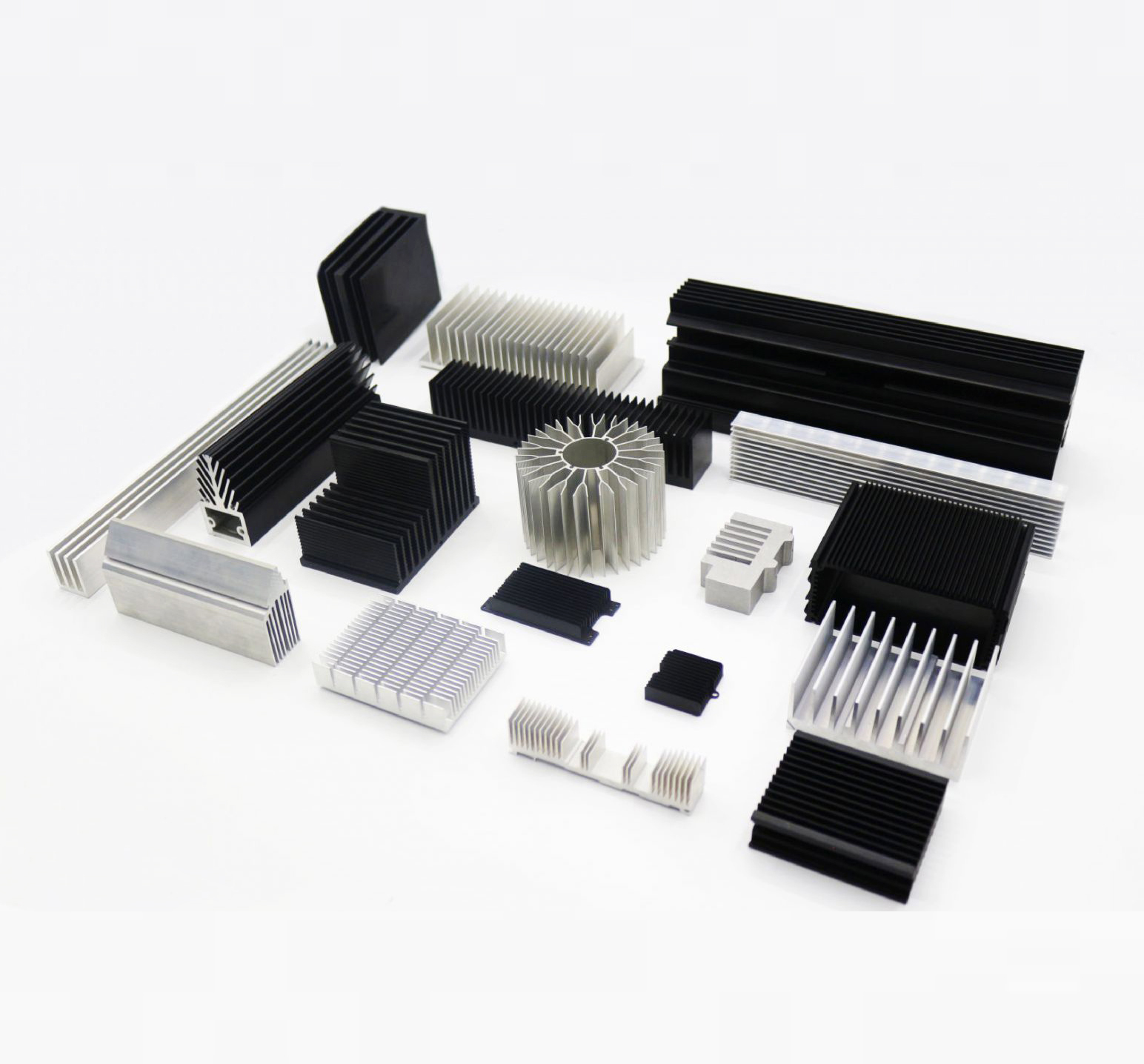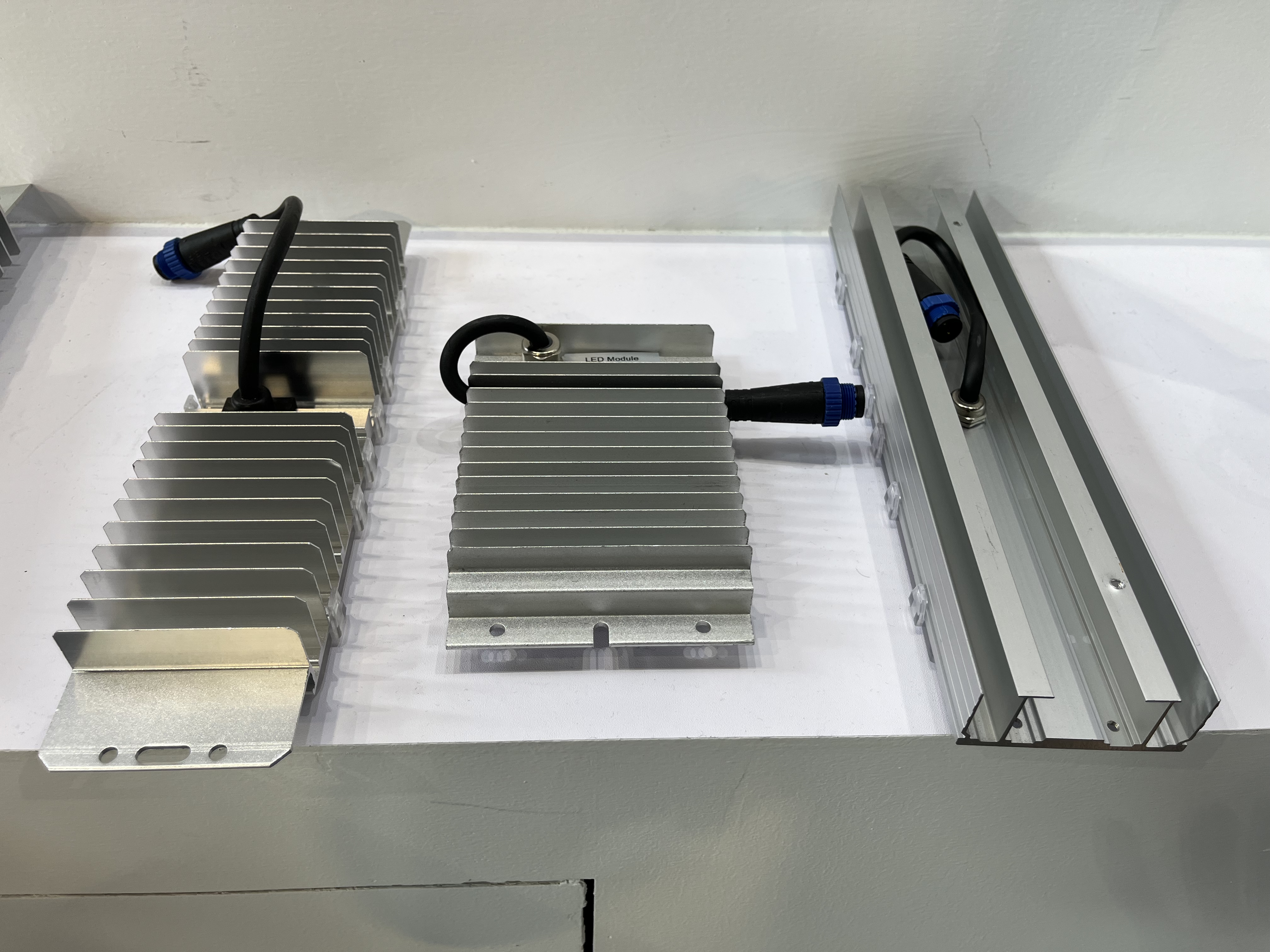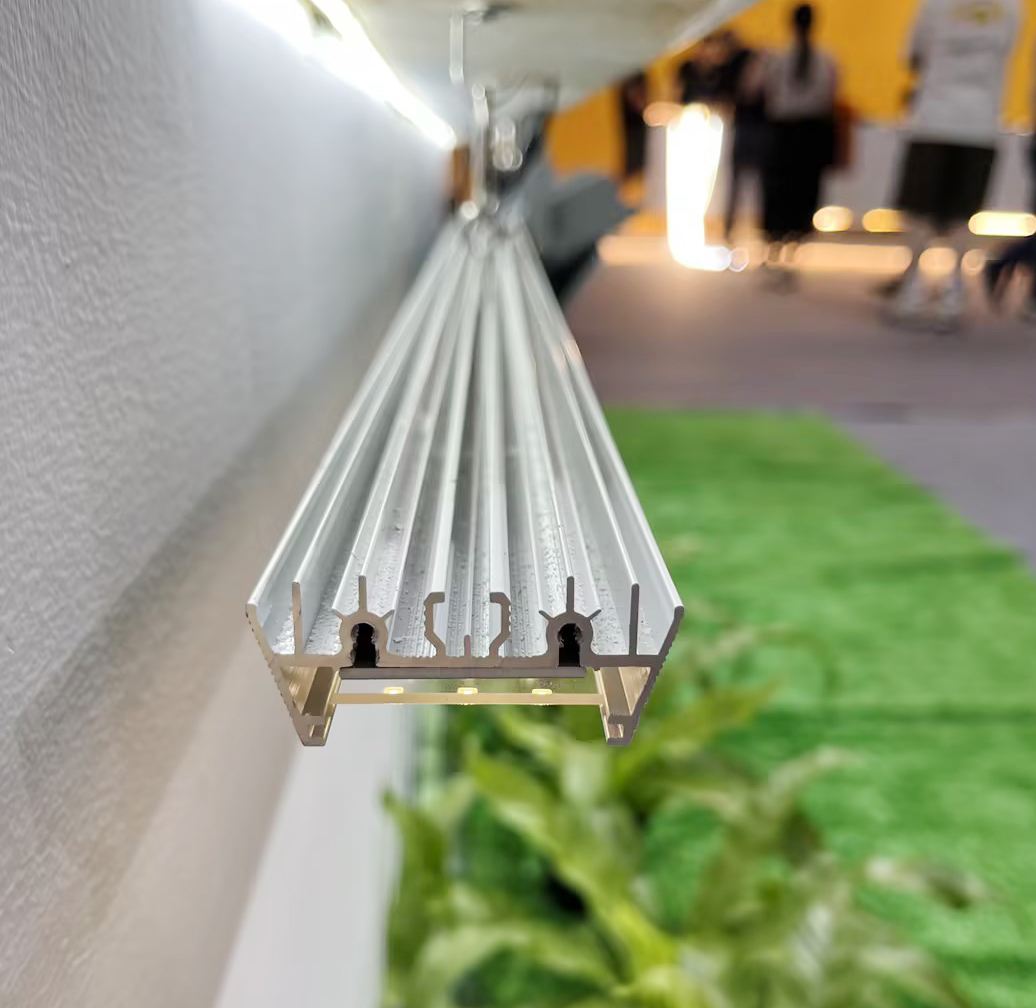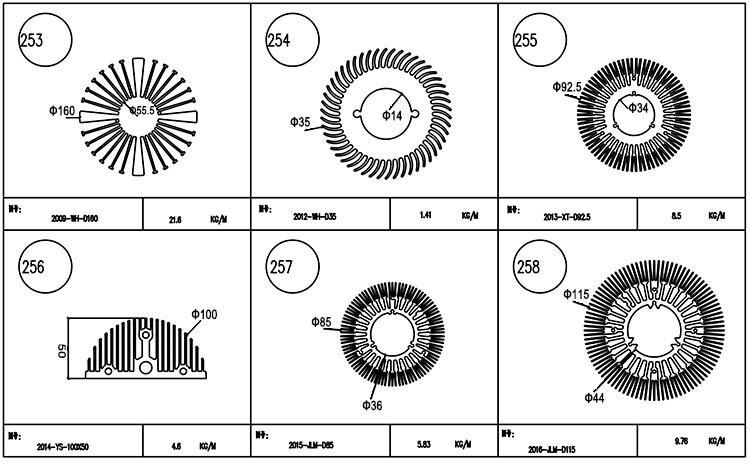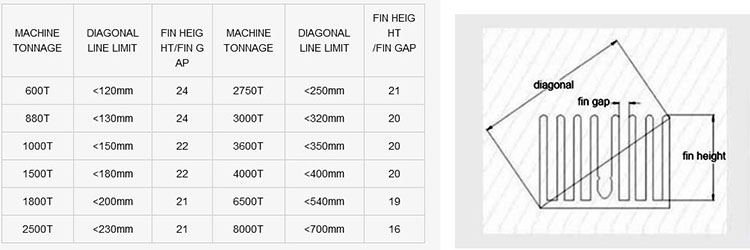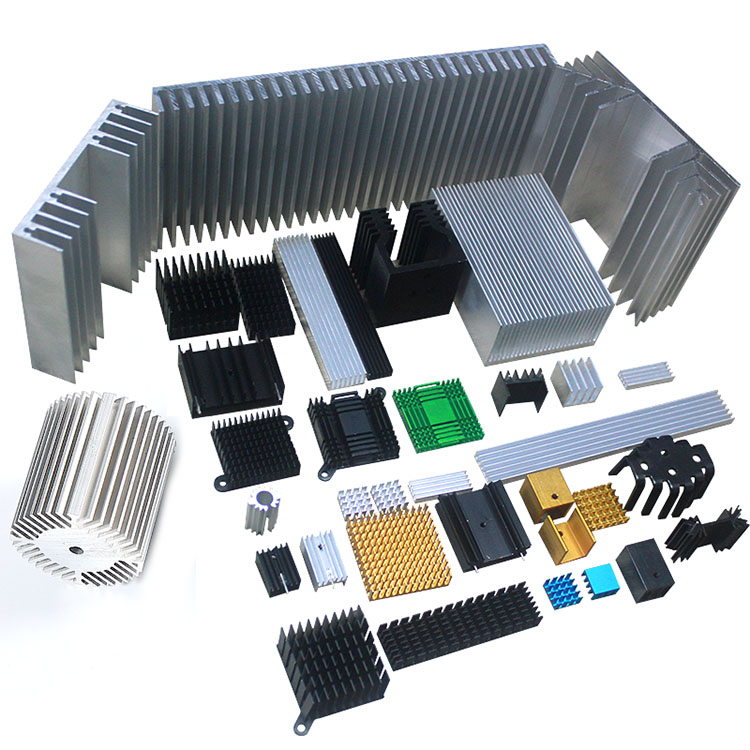
What materials are suitable for commonly used LED light heat sinks?
2024-06-25 17:07How do street lights, plant grow lights, and car headlights dissipate heat, and how do you choose the right aluminum heat sink profiles?
What materials are suitable for commonly used light fixtures' heat sinks? Given the immature chip and packaging technology domestically, the system design of light fixtures becomes particularly important. How can we ensure the optimal lifespan and light output quality of the chips? This becomes the primary concern for light fixture manufacturers. In fact, the main factor affecting the above is "heat." Each chip has a junction temperature that needs to be controlled below 85°C to ensure optimal operation. So, how can we ensure smooth and efficient heat transfer from the chip, aluminum substrate, and thermal conductive material to the heat sink, and then to the surrounding environment?
In addition to the careful design of each structural link by engineers, the selection of materials and process treatment for each link must be carefully considered and tested to achieve optimal operation. Let's focus on the design of commonly used light fixture heat sinks. Currently, the most common heat sink designs on the market are aluminum extrusions and aluminum alloy die castings.
Common aluminum extrusions include:
Aluminum extrusion heat sink
Aluminum extrusion light tube heat sink
Characteristics of aluminum extrusions:
Corrosion Resistance - Aluminum extrusions have a density of only 2.7 g/cm³, about one-third that of steel, copper, or brass (7.83 g/cm³, 8.93 g/cm³, respectively). Under most environmental conditions, including air, water (or saltwater), petrochemical, and many chemical systems, aluminum demonstrates excellent corrosion resistance.
Electrical Conductivity - Due to its excellent electrical conductivity, aluminum extrusions are often chosen. On an equal weight basis, aluminum’s conductivity is nearly twice that of copper.
Thermal Conductivity - The thermal conductivity of aluminum alloys is about 50-60% that of copper, making it advantageous for manufacturing heat exchangers, evaporators, heating appliances, cooking utensils, and automobile cylinder heads and radiators.
Non-Magnetic - Aluminum extrusions are non-magnetic, which is an important property for the electrical and electronic industries. Aluminum extrusions are non-combustible, making them important for applications involving the handling or contact with flammable or explosive materials.
Machinability - Aluminum extrusions exhibit excellent machinability. The variations in machining characteristics across different wrought and cast aluminum alloys, and in the various states these alloys can be produced, are considerable and need specific machinery or techniques.
Formability - The specific tensile strength, yield strength, ductility, and corresponding work hardening rate govern the allowable degree of deformation.
Recyclability - Aluminum has extremely high recyclability, and the properties of recycled aluminum are nearly identical to those of primary aluminum. These characteristics make aluminum extrusions important as heat sinks.
Common aluminum alloy die castings:
Die Castability of Aluminum Alloys:
Many aluminum alloys are used for die casting, each with different die casting properties. Reasonable die-casting aluminum alloys should have the following conditions:
Low melting point to reduce the temperature difference with the mold.
Good fluidity to improve filling capacity during die casting.
Small thermal expansion coefficient to reduce shrinkage.
Low high-temperature brittleness to avoid high-temperature cracking.
Low affinity with molds to avoid sticking; iron content should not be too high.
Low oxidation of molten metal to maintain fluidity.
Low casting stress to avoid deformation and impact on strength.
Role of Elements in Die-Casting Aluminum Alloys:
Silicon (Si): Primarily improves the fluidity of die-casting aluminum alloys. At the eutectic point (12.5%), aluminum alloy has the best fluidity. Higher silicon content improves fluidity and reduces shrinkage, but excess silicon makes the alloy brittle and difficult to cut. Machining aluminum alloys have good toughness and are easy to process and oxidize, while die-casting aluminum alloys are difficult to process and less prone to oxidation due to silicon.
Copper (Cu): Primarily enhances the mechanical strength and corrosion resistance of aluminum alloys. Increased copper reduces die-casting performance but decreases crucible corrosion.
Magnesium (Mg): Primarily increases tensile strength, hardness, and corrosion resistance, improving anodized film performance, but excess magnesium increases thermal cracking and reduces die-casting performance.
Iron (Fe): Mainly reduces sticking to molds. Ideally, 0.8-1.0% iron content is desired for easy mold release, but excess iron creates hard spots, causing tool wear and breakage during machining.
Designing Aluminum Extrusion Heat Sinks: When designing heat sinks from aluminum extrusions, the key is the application of principles of thermal aerodynamics.
Designing Heat Sinks from Aluminum Alloy Die Castings: When designing heat sinks from aluminum alloy die castings, besides considering thermal aerodynamics, it's essential to ensure sufficient heat dissipation area. Increasing the heat dissipation area can be achieved by making the fins thinner and taller. Due to die-casting molding technology, the structure of the light fixture can be designed integrally.
Having the same material for the entire light fixture ensures more efficient heat transfer in the same medium. The lifespan and light output quality of the light fixture also benefit from the popularity of aluminum alloy die-casting heat sinks.

